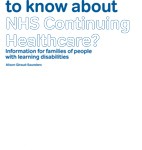
An update from our Founders on the future of The Mental Elf.
[read the full story...]
Self-funders (or elf-funders) are people who have to pay for their social care using their own finances, as opposed to receiving partial or full funding from their local council’s adult social care department. In England a threshold exists of £23,250, those who have above this amount in savings and sometimes other assets are deemed to [read the full story…]

Bethany Gill summarises a recent narrative review of mental health apps for depression and anxiety, which explores what’s needed to make sure apps are successfully implemented and used sustainably.
[read the full story...]
A guest post from Caroline Fiennes, Director of Giving Evidence, who has today published a new report that explores in the ways in which UK mental health charities use evidence in the development of their services.
[read the full story...]
Robin Miller assesses a paper on what has been happening to the provision of social care services to Black, Asian and Minority Ethnic (BAME) older people and raises concerns about equality.
[read the full story...]
In this blog, Caroline De Brún looks at a report published by the Nuffield Trust, which suggests a list of priorities for the government to act on, around improvement in the NHS.
[read the full story...]
This guide is an excellent example of developing resources to help learn from good practice. It has been written for all commissioners and providers, but in particular clinical commissioners, and mental health commissioners and practitioners. Primary care mental health The first section of the guide gives a comprehensive overview of the state of primary care [read the full story…]

The King’s Fund has just published this report, which describes how the health and social care workforce are coming up with new models for delivering primary care, to support the “current system of commissioning”. The report is aimed at commissioners, GP staff, and related stakeholders, including social care and local authorities, and promotes improved liaison [read the full story…]

Understanding the sources of funding to support disabled people can be a confusing business, but this helpful booklet from the foundation for people with learning disabilities is a useful addition to reducing that confusion. It focuses on continuing healthcare, a particular pot of money with some very specific rules governing how and on whom it [read the full story…]